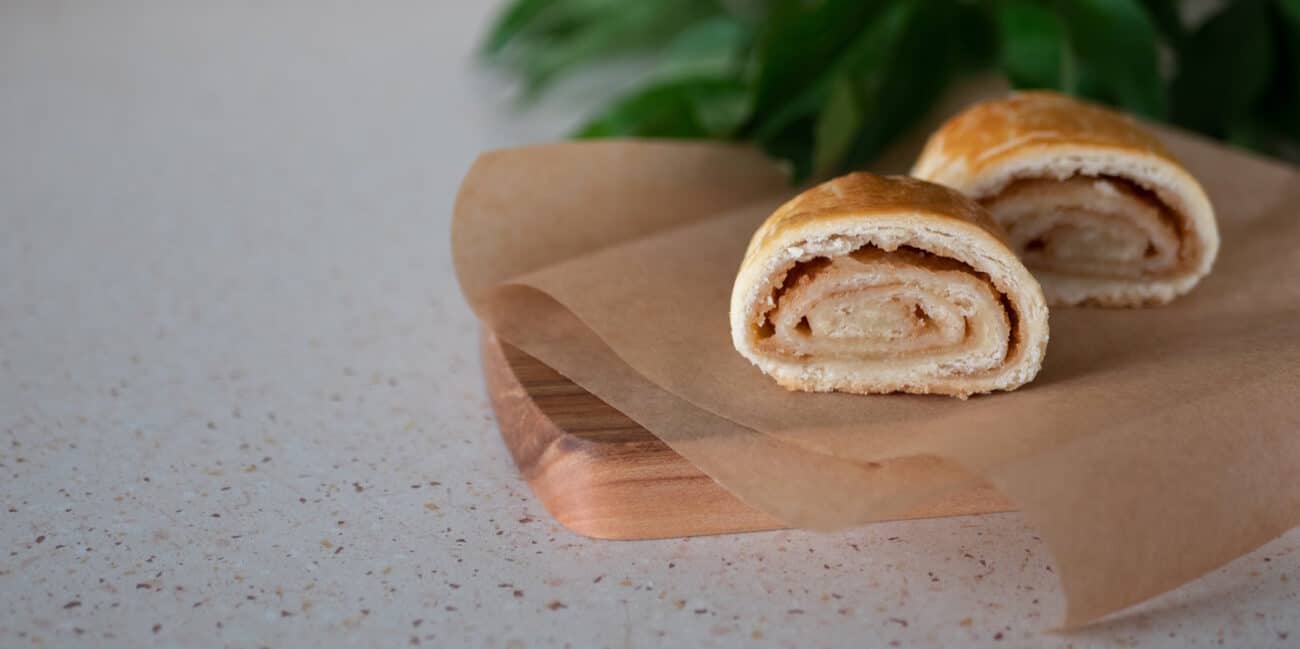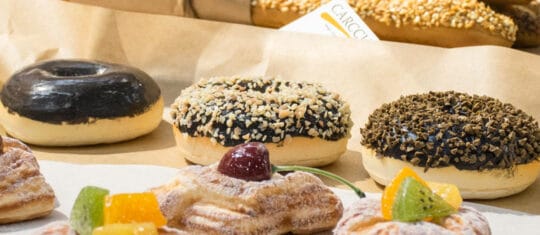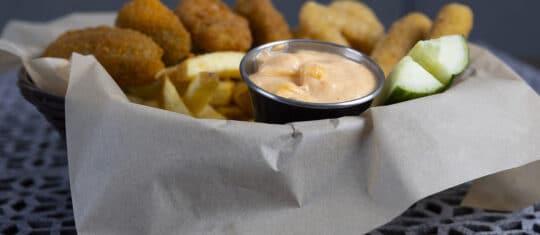A Brief Guide to Choosing the Right Kitchen Paper for Cooking and Baking
In the realm of professional and home kitchens, selecting the right type of paper for food preparation can make a significant difference. Carccu®, a Finnish pioneer in sustainable packaging solutions, offers two distinct types of products that cater to the needs of culinary experts: baking parchment and baking paper. Each serves unique purposes, enhancing the cooking and baking experience through their specialized features.
Baking Parchment: Greaseproof Paper for Food Wrapping
Carccu® parchment papers, often referred to as greaseproof papers, are manufactured with ecological integrity in mind: they are compostable and biodegradeable and do not contain PFAS or other fluorochemicals. Produced in Finland, the PFAS-free papers are ideal for food wrapping in professional kitchens where direct contact with food is inevitable. It’s important to note that unlike baking paper, baking parchment does not have a non-stick surface, which makes it unsuitable for baking. Parchment paper provides versatility beyond the kitchen as it is excellent choice for crafts, acting as a superb tracing paper that can be drawn on, taped and glued.
Baking Paper: The Professional’s Choice for Heat and Grease Resistance
Carccu® Professional baking papers are crafted for optimal performance in baking scenarios. The top-quality baking paper available in rolls and sheets features a siliconized surface on both sides, enhancing its non-stick properties and making it suitable for use in ovens, microwaves, and panini grills. With a high heat resistance of up to 230 °C (446 °F), it prevents food and pastries from sticking to cooking surfaces, thereby ensuring a cleaner cooking process and easier cleanup.
The robust composition of Carccu® baking paper not only resists grease but also retains moisture exceptionally well, which is crucial for achieving perfect baking results. Its economical design often allows for multiple uses, depending on the baking temperature and the messiness of the products being baked. This feature underscores its cost-effectiveness and environmental benefits. Packaged neatly in boxes, this baking paper is easy to store and dispense, enhancing efficiency in busy kitchen environments.
PFAS-Free Kitchen Papers Drive Ecological Impact and Sustainability
Carccu® distinguishes itself in the market not only through the high quality of its kitchen papers but also by its commitment to sustainability across its product lines and its sustainable manufacturing practices. The Carccu® Professional baking paper does not contain PFAS or other fluorochemicals and is fully compostable in industrial compost facilities, offering an eco-friendly alternative that integrates seamlessly into professional recycling systems. Carccu®’s PFAS-free parchment papers are biodegradable as well, making them ideal for food wrapping in professional settings where ecological impact matters. This commitment to sustainability is further underscored by Carccu®’s use of responsibly sourced materials and production processes that minimize environmental impact, making their products a conscientious choice for environmentally aware businesses and consumers. Carccu®’s commitment to sustainability is reinforced by its achievement of FSC® Chain of Custody -certification and PEFC Chain of Custody -certification in 2023, recognizing the company’s continuous efforts to protect the environment.
Baking Paper vs. Baking Parchment – Choosing the Right Paper for Your Kitchen Needs
Choosing between parchment paper and baking paper depends largely on the specific requirements of the task at hand. For tasks that require non-stick properties and high heat resistance, Carccu® baking paper is the ideal choice. For non-baking uses where adaptability and ecological properties are valued, the greaseproof baking parchment is the go-to option.
In conclusion, whether it’s wrapping delicacies in a sustainable baking parchment or ensuring baked goods come off the tray effortlessly with baking paper, Carccu® offers solutions that meet the broad material needs of today’s culinary professionals. Through continuous innovation and a commitment to quality, Carccu® remains a leader in kitchen efficiency and environmental stewardship.
FAQ
Does parchment paper have PFAS?
No, Carccu® parchment papers are PFAS-free. They are ecological, compostable, and biodegradable products, designed for food wrapping in professional kitchens. Carccu® ensures that neither PFAS nor PFC chemicals are used in their products or by their suppliers, maintaining high standards of product safety.
Can you print on baking paper?
No, you cannot print on baking paper because printing colors do not adhere to it. However, Carccu® offers a wide range of other printable products for branding purposes.
Can you print on parchment paper?
Yes, you can print on parchment paper. For direct contact with food, a print side down/external surface print is recommended. Flexographic printing is adaptable to a wide range of substrates including various types of paper, from smooth to more textured surfaces like parchment. The process uses flexible printing plates that can conform to slightly uneven surfaces, which is ideal for the slightly textured surface of parchment paper.
Is greaseproof paper the same as baking parchment?
The terms “greaseproof paper” and “baking parchment” are sometimes used interchangeably. However, baking paper, which differs from baking parchment in its non-stick quality and high heat-resistance, also resists grease and retains moisture exceptionally well.
Is parchment paper the same as baking paper?
No, they are not the same. Baking paper is highly greaseproof, and it has a non-stick surface and a high heat-resistance, which make it suitable for baking. In contrast, parchment paper is greaseproof but it does not have a non-stick surface and it is better suited for non-baking applications like food wrapping and crafts.
Can you put baking paper in the oven?
Yes, Carccu®’s baking paper is designed for use in ovens. It is highly heat-resistant (up to 230 °C / 446 °F), highly greaseproof, and can often be used more than once in baking environments such as ovens, microwaves, and panini grills. The number of times the sheet can be used depends on the baking temperature and the messiness of the foods being baked on it.



